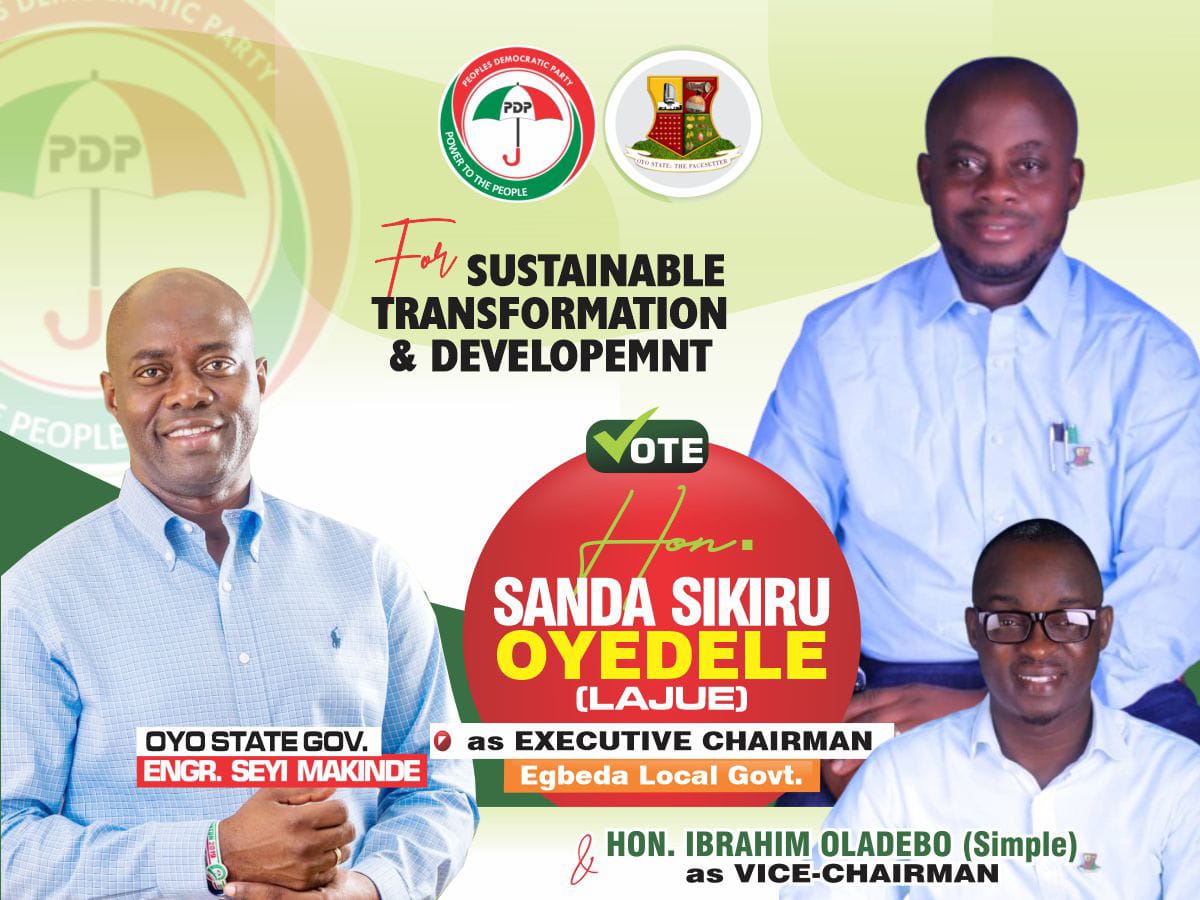SEYI MAKINDE:The Phenomena Using SDGs No Poverty,Zero Hunger,Agribusiness Initiative For Post COVID-19 Challenges–SDG Boss
Seyi Makinde: The Phenomena Using SDGs Goal(1)No Poverty and Goal(2)Zero Hunger, Agribusiness Initiative to Post COVID-19 Challenges –SDG Boss

While engaging the Senior Special Assistant to Oyo State Governor on Sustainable Development Goals, Hon. Kunle Yussuff MON, he opined that,
as the Oyo State population continues to grow, Makinde’s administration has brought Agribusiness innovation in order to sustainably increase agricultural productions, improve the global supply chain, decrease food losses and waste, and ensure that those who are suffering from hunger and malnutrition have access to nutritious food to eradicate hunger after COVID-19.


The 2012 Conference on Sustainable Development (Rio+20) reaffirmed the right of everyone to have access to safe and nutritious food, consistent with the right to adequate food and the fundamental right of everyone to be free from hunger.



Yussuf quoted the UN Secretary-General’s Zero Hunger Challenge launched at Rio+20 called on governments, civil society, faith communities, the private sector, and research institutions to unite and end hunger and eliminate the worst forms of malnutrition.


The Zero Hunger Challenge has since garnered widespread support from many member States and other entities.

The Sustainable Development Goal to “End hunger, achieve food security, improved nutrition and promote sustainable agriculture” (SDG2), recognizes the inter linkages among supporting sustainable agriculture, empowering small farmers, promoting gender equality, ending rural poverty, ensuring healthy lifestyles, tackling climate change, and other issues addressed within the set of 17 Sustainable Development Goals in the Post-2015 Development Agenda.

Beyond adequate calories intake, proper nutrition has other dimensions that deserve attention, including micro nutrient availability and healthy diets. Inadequate micro nutrient intake of mothers and infants can have long-term developmental impacts.
Unhealthy diets and lifestyles are closely linked to the growing incidence of noncommunicable diseases in both developed and developing countries.
Adequate nutrition during the critical 1,000 days from the beginning of pregnancy, through a child’s second birthday merits a particular focus.
The scaling Up Nutrition (SUN) Movement, has made great progress since its creation five years ago in incorporating strategies that link nutrition to agriculture, clean water, sanitation, education, employment, social protection, health care and support for resilience.
Speaking further, Kunle Yussuf added that
extreme poverty and hunger are predominantly rural, with small holder farmers and their families making up a very significant proportion of the poor and hungry.
Thus, eradicating poverty and hunger are integrally linked to boosting food production, agricultural productivity and rural incomes.
Hon. Yusuff, however, said agriculture systems worldwide must become more productive and less wasteful. Sustainable agricultural practices and food systems, including both production and consumption, must be pursued from a holistic and integrated perspective.
Land, healthy soils, water and plant genetic resources are key inputs into food production, and their growing scarcity in many parts of the world makes it imperative to use and manage them sustainably.
Boosting yields on existing agricultural lands, including restoration of degraded lands, through sustainable agricultural practices would also relieve pressure to clear forests for agricultural production. Wise management of scarce water through improved irrigation and storage technologies, combined with development of new droughts resistant crop varieties, can contribute to sustaining dry lands productivity.
Halting and reversing land degradation will also be critical to meeting future food needs.
Further more, Makinde’s aide argued, there is no reason why United Nations shouldn’t confer Makinde with the SDGs Developments Ambassador owing to the four cardinal points of his administration which revolve round 17 Goals of SDGs Agenda 2030, particularly Goal 1, 2, 3, 4,5,6,9,11,15, 16 and 17.
He concluded, there is no doubt that after the first four years of Makinde’s administration, Oyo State Government would have achieved larger percentage on SDGs Development Agenda 2030.

